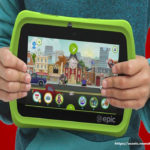Elementary school mathematics is the foundation of all future learning, but for many young students, it can feel like a chore of endless repetition. The rise of digital math games offers a dynamic solution, transforming drill-and-practice into engaging, personalized adventures. These educational tools leverage the appeal of technology to deliver significant cognitive and affective benefits that dramatically improve how young learners acquire, practice, and master fundamental math concepts.
1. Boosted Engagement and Motivation
Traditional math instruction often involves passive learning, which can quickly lead to boredom and distraction in elementary students. Digital games flip this script.
- Benefit: Digital games inject an element of fun and challenge into learning, making students actively engaged in the material. Features like colorful graphics, character avatars, levels, rewards, and competition (against oneself or others) boost intrinsic motivation. Students are driven to solve problems not just for a grade, but to progress in the game.
- Result: This heightened interest can increase “time-on-task”, leading students to spend more focused time practicing math concepts without even realizing they are learning.
2. Enhanced Skill Reinforcement and Fluency
Mastering foundational math skills, such as addition, subtraction, multiplication tables, and number recognition, requires extensive repetition and practice.
- Benefit: Digital games provide endless, varied opportunities for practice and reinforcement. Through repeated exposure in a low-stakes, game-based environment, students solidify their understanding of core mathematical principles. Games designed for drill-and-practice can significantly improve mathematical fluency and the speed and accuracy of mental calculations.
- Concept Connection: The ability to rapidly recall and use these basic facts frees up cognitive resources, allowing students to focus on higher-level problem-solving later on.
3. Immediate Feedback and Error Correction
One of the most powerful pedagogical features of digital games is their ability to provide instant feedback.
- Benefit: Unlike waiting for a graded worksheet, digital games provide immediate feedback upon every response. If a student answers incorrectly, the game instantly signals the mistake (often with a visual or auditory cue) and sometimes offers hints or guidance. This rapid feedback loop is crucial for learning retention, allowing students to identify and correct misconceptions right away, before those errors become entrenched habits.
4. Support for Individualized and Personalized Learning
Every elementary student learns at a different pace and has different areas of strength and weakness. Digital math games are uniquely equipped to address this variability.
- Benefit: Many digital games are adaptive, meaning they can tailor the content and difficulty to the individual student’s performance and needs. Struggling learners can receive extra practice or scaffolding on specific topics (like fractions or place value), while advanced learners are automatically presented with more complex challenges, ensuring they are always learning at their optimal level.
- Accessibility: This personalization enables self-paced learning, which helps students build self-awareness and confidence in their abilities by allowing them to work independently and productively.
5. Fostering Higher-Order Cognitive Skills
Digital math games go beyond simple arithmetic to encourage essential critical thinking and problem-solving abilities.
- Benefit: Games often present mathematical concepts within a logical puzzle or scenario. For example, a student may need to calculate resources, manage a budget, or strategically plan moves based on numerical patterns. These immersive contexts challenge students to think logically, strategically, and analytically.
- Skill Development: By engaging in these complex, game-based reasoning tasks, students develop a deeper conceptual understanding of how math concepts connect and are applied in practical ways, building foundational problem-solving skills necessary for their future academic journey.











